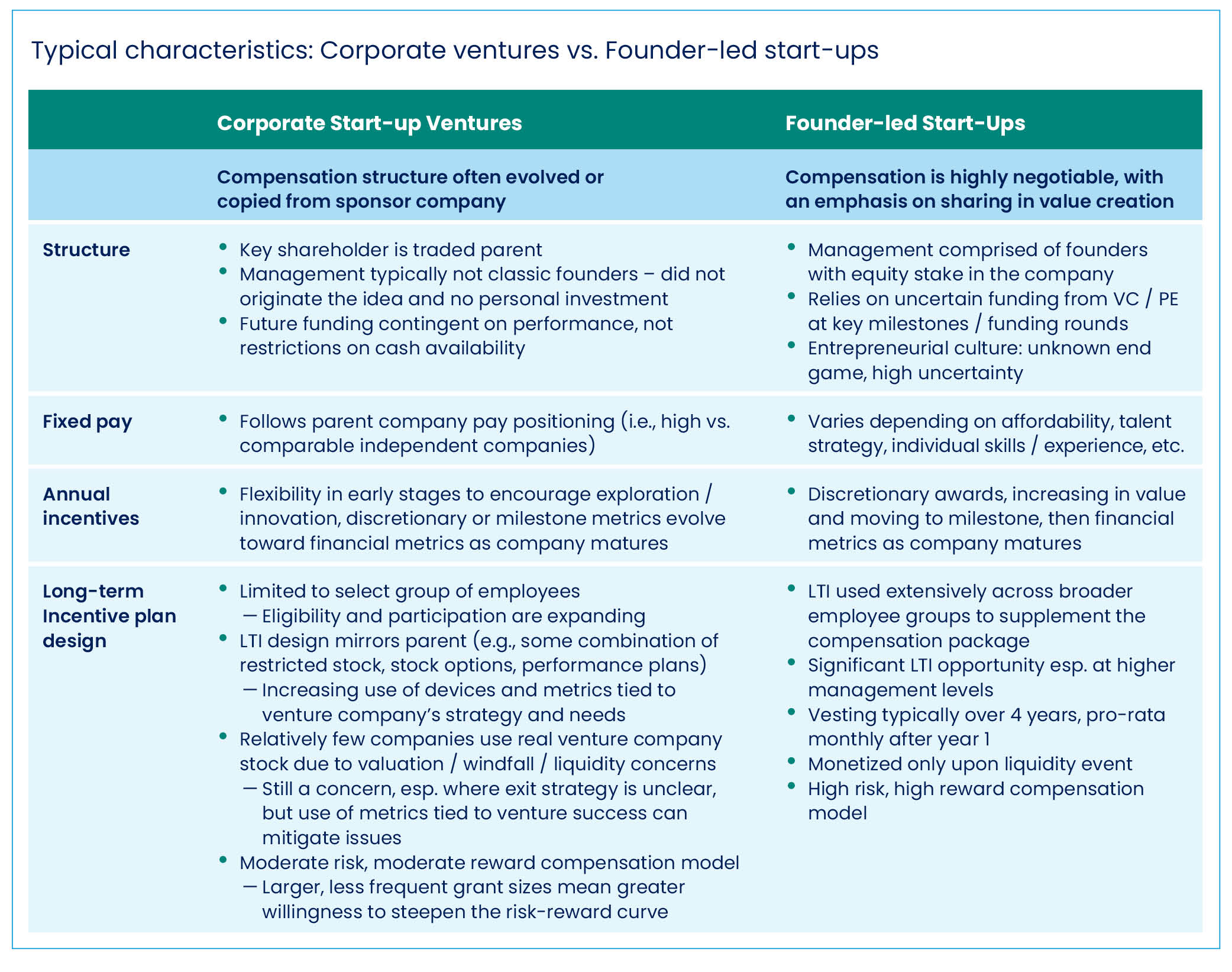- Leveling up with LTIs. WTW’s data finds that corporate ventures are working hard to be more dynamic, entrepreneurial and competitive with the talent markets relevant to startups in their incentive plans.
- Higher eligibility than public companies. While corporate ventures tend to have more restrictive eligibility rules for LTI plans, a healthy 20% allow all employees or all salaried employees to participate. That’s a much higher percentage than among publicly traded companies.
- Better positioned for success. These trends bode well for these venture companies, as their publicly traded parents allow them the reward tools needed to compete with more traditional startup organizations for the talent critical for business success.
The proliferation of studies, surveys and analyses of public disclosures are turning executive compensation data into a commodity. Those who use this data day in and day out know that finding relevant and robust market data to inform critical pay decisions isn’t easy.
This is especially true for pre-IPO and other non-publicly traded companies.
These companies do not publish annual reports and rarely participate in compensation surveys. So, when designing a senior executive pay package for these organizations, many stakeholders base their decisions on anecdotes, word of mouth or rules of thumb. These might include “only options are suitable for a startup” or “the equity incentive pool should be 15% of shares.” These guideposts may sound reasonable, but are they? Might they vary by ownership structure or industry or geography? If they did, how would we know?
To help decision makers, WTW recently developed a unique database of more than 200 long-term incentive (LTI) plans used in privately held and pre-IPO companies around the world. This resource reflects our working experiences with such clients — and the findings are revelatory.
Design Choices Abound
The database was built from consulting with hundreds of dynamic, privately held companies, from venture capital backed U.S. startups to family-controlled Asian firms to globe-spanning European corporate ventures.
It shows there are no rules of thumb to rely on. LTI plan design choices reflect many considerations, including market considerations (industry, geography, etc.) as well as specific company circumstances (business strategy, ownership structure, investment horizon, exit strategy, etc.).
One important trend WTW sees is that corporate ventures are working hard to be more dynamic, entrepreneurial and competitive with the talent markets relevant to startups. Today, many corporate ventures around the world have a compensation structure that reflects their ownership structure. These basic characteristics — including some key LTI design trends impacting corporate start-up ventures — are shown in the table below.

But your data show that within these broad outlines, many corporate ventures clearly recognize the limitations of the structures above and are designing LTI plans that better mimic those of the more entrepreneurial founder-led firms. They are reserving larger equity pools for incentive plan grants and generally adopting some of the practices seen within VC- and PE-backed companies.
For instance, while median incentive pool allocations for corporate ventures are slightly below the median of VC/PE-backed founder firms, 90th percentile practices for the two groups are quite close.
Further, while corporate ventures tend to have more restrictive eligibility rules for LTI plans, a healthy 20% allow all employees or all salaried employees to participate. That’s a much higher percentage than among publicly traded companies (but still behind the rates seen among VC- and PE-backed firms).
More surprisingly, corporate ventures are much more likely than VC/PE-backed firms to make LTI grants on a one-off or ad-hoc grant schedule.
Private Companies’ Incentives Get Customized
Private companies are taking more opportunities to be inventive in their LTI plan designs — designing bespoke plans that reflect the business strategy and goals of the venture organization and that can deliver outsized rewards when warranted by performance.
Among these shifts are more infrequent but larger LTI awards, expanding employee eligibility and participation and larger LTI plan share reserves.
These trends bode well for these venture companies, as their publicly traded parents allow them the reward tools needed to compete with more traditional startup organizations for the talent critical for business success.
Editor’s Note: Additional Content
For more information and resources related to this article see the pages below, which offer quick access to all WorldatWork content on these topics:






